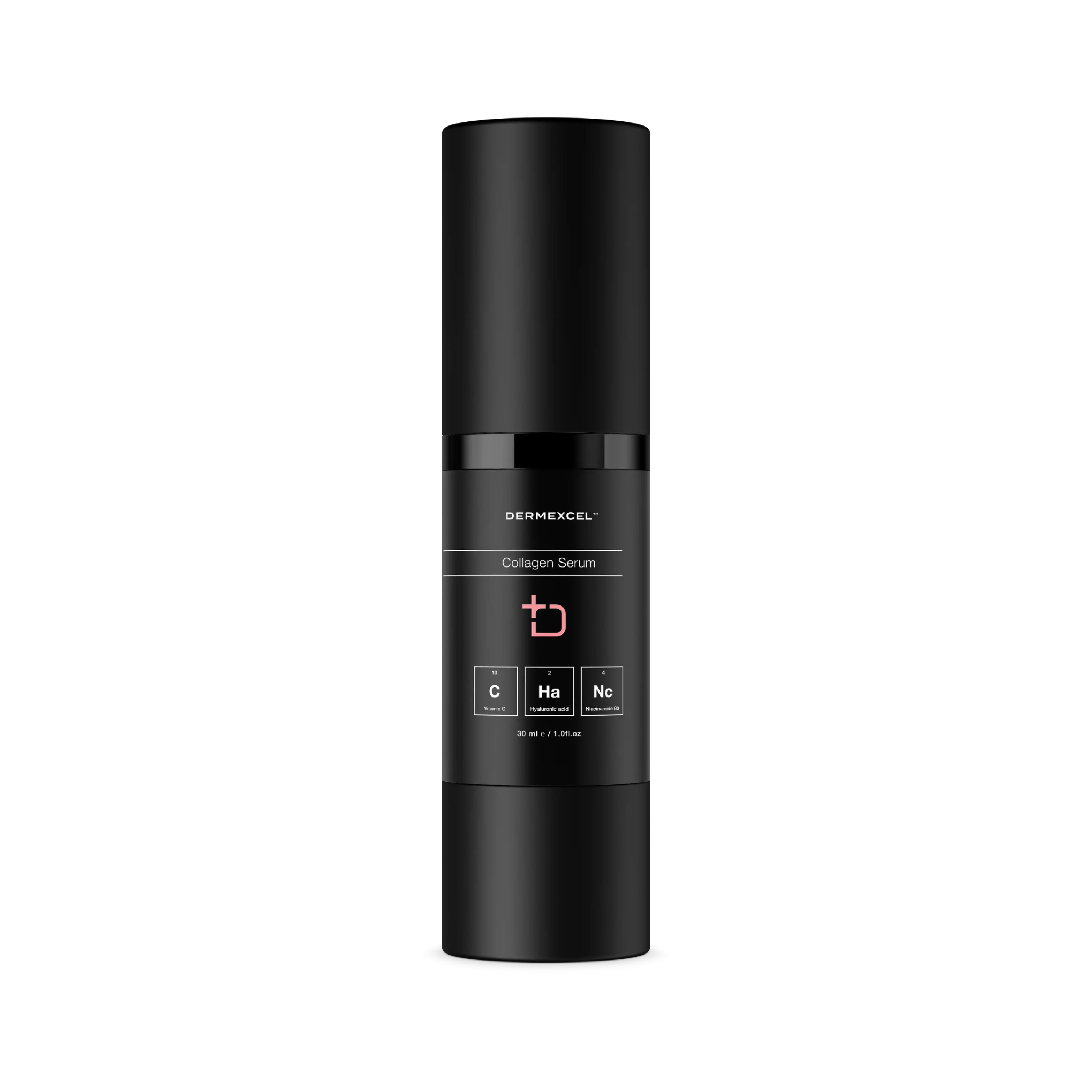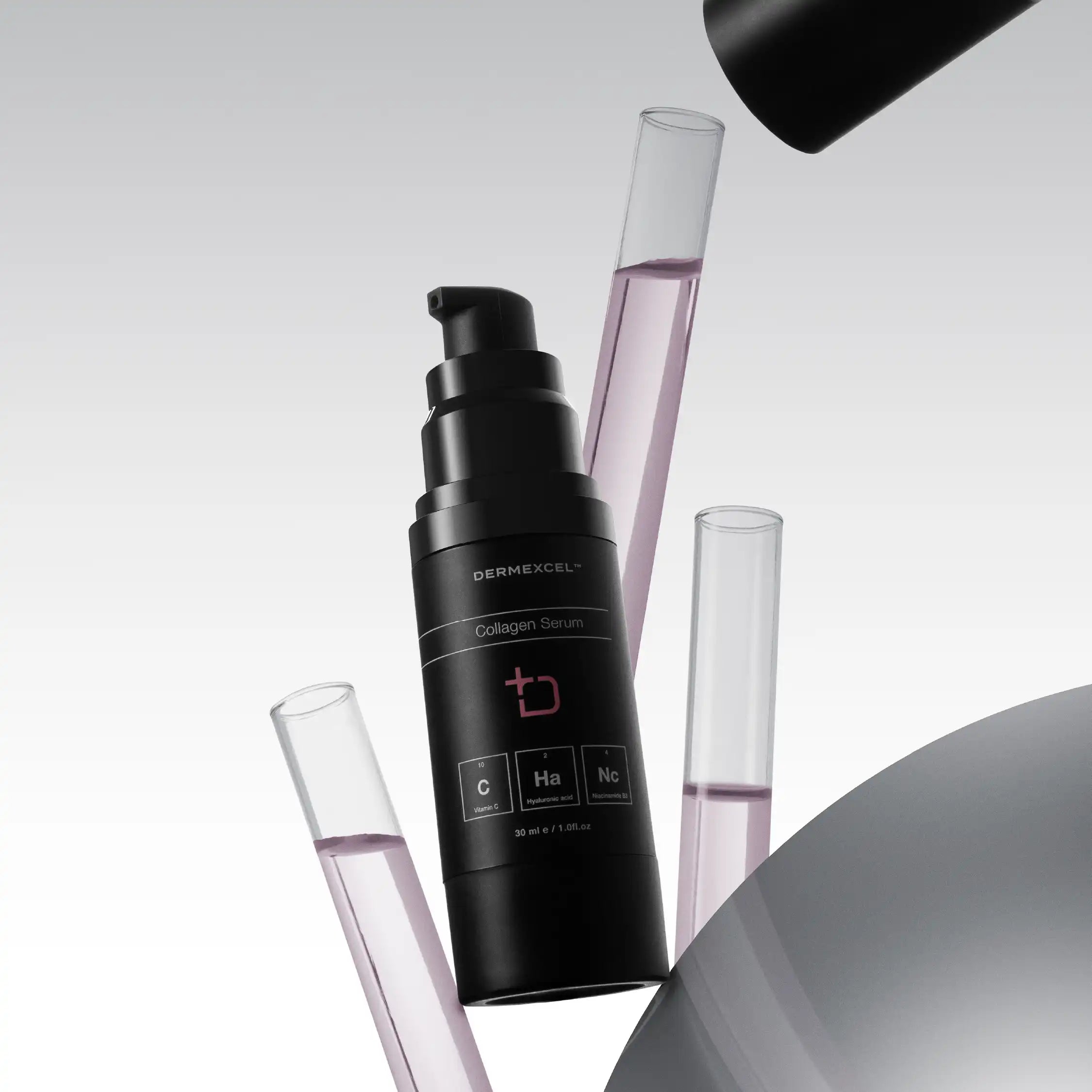





Pay interest-free installments from R 289.25 with various payment gateways selected at checkout.
SIZE: 30 mL
Tetrahexyldecyl Ascorbate




Choose options


Tetrahexyldecyl Ascorbate
Aqua, Tetrahexyldecyl ascorbate, Honey extract & soluble collagen & hydrolyzed elastin & Sodium PCA & Serine & Glycogen, Sodium Acrylates Copolymer & Lecithin, Niacinamide, Hydrolyzed hyaluronic acid, Cyclopentasiloxane & C30-45 Alkyl Cetearyl Dimethicone Crosspolymer & PEG/PPG-20/23, Polyacrylamide & C13-14 Isoparaffin & Laureth-7, Sodium Phytate & Aqua & Alcohol, Phenoxyethanol & Ethylhexylglycerin, Tocopherol, Dimethyl Isosorbide & Hydroxypinacolone Retinoate, Hydroxyethylcellulose
Collagen Serum
product benefits
Boost Collagen Production
Hydrates and Plumps
Refine Skin Texture & Pores
Antioxidant
Brightening
Pigmentation treatment
Indications for Collagen Serum
Aging Skin
Dull & Lifeless Skin
Dry Skin
Volume loss
DNA Protection
collagen serum
mode of action
collagen serum targets all structural changes in
aging skin


collagen

Fibroblasts

Elastin

Hyaluronic acid
Testimonials


Not sure which products you need?
Find your regimen
Assessment
Submit your free Dermal Diagnosis™ Assessment
Treatment Plan
Receive your Free Personal Profile and Treatment Plan
Confident Skin
Start your Simple and Effective journey to Confident Skin!

















